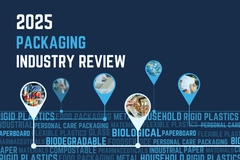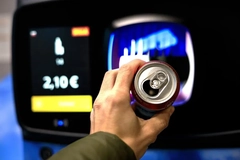No more greenwashing: European Parliament votes to ban misleading ads and generic environmental claims

16 May 2023 --- Members of the European Parliament (MEPs) are backing draft legislation to improve product labeling and durability and stop misleading claims. The proposal aims to help consumers make environmentally friendly choices and encourage companies to offer more durable and environmentally sustainable products.
With 544 votes in favor, 18 against and 17 abstentions, the plenary approved the proposal for a new directive on empowering consumers for the green transition last Thursday.
The EP’s approved negotiating mandate foresees banning the use of general environmental claims like “environmentally friendly,” “natural,” “biodegradable,” “climate neutral” or “eco” if these do not come with detailed evidence.
It also aims to ban environmental claims based solely on carbon offsetting schemes. Other misleading practices such as making claims about the whole product if the claim is valid only for one part of it, or saying that a product will last a certain amount of time or can be used at a certain level of intensity if that is not true, will also be forbidden.
 MEPs envision allowing only environmental sustainability labels based on official certification schemes.Fight against early obsolescence
MEPs envision allowing only environmental sustainability labels based on official certification schemes.Fight against early obsolescence
Innova Market Insights flagged that environmental claims like “carbon impact,” “reduced packaging” and “plastic-free” on F&B packaging have almost doubled (92%) since 2018. However, the proliferation of sustainability messaging has created fears of unsubstantiated claims.
To simplify product information, MEPs envision allowing only environmental sustainability labels based on official certification schemes or established by public authorities to be used.
To make products last longer, the EP wants to ban introducing design features that limit a product’s life or lead to goods malfunctioning prematurely. Additionally, producers should not be allowed to limit a product’s functionality when it is used with consumables, spare parts or accessories (for example, chargers or ink cartridges) made by other companies.
To help people choose more lasting and repairable goods, buyers would have to be informed of any repair restrictions before making a purchase, asserts the parliament. Additionally, MEPs propose a new guarantee label indicating not only the length of the legally required guarantee but also the length of any possible extensions offered by producers. This would highlight quality goods and motivate companies to focus on durability.
Next steps
The Council of the EU adopted its own negotiating mandate on May 3, meaning negotiations between the EP and MEPs on the final content and wording of the directive will start soon, according to the parliament.
The proposed directive is part of the first circular economy package, along with the ecodesign regulation, construction products regulation and an own-initiative report on the EU strategy for sustainable and circular textiles. It paves the way for a new green claims directive that will further specify the conditions for making environmental claims in the future.
The Conference on the Future of Europe
In adopting this legislation, the EP is responding to citizens’ expectations regarding sustainable consumption, packaging and production as well as sustainable growth and innovation, as expressed in proposals 5 (1), (7) and (10) and 11 (2) of the conclusions of the Conference on the Future of Europe.
The Conference on the Future of Europe took place between April 2021-May 2022 and was said to be the “first of its kind” – a major pan-European democratic exercise, with citizen-led debates enabling people from across Europe to share their ideas and help shape our common future. The EP is responding to citizens’ expectations regarding sustainable consumption, packaging and production.
The EP is responding to citizens’ expectations regarding sustainable consumption, packaging and production.
With more than five million platform visitors and more than 700,000 event participants, the European Commission says the conference succeeded in creating a public forum for an open, inclusive and transparent debate with citizens around several key priorities and challenges.
Maintaining consumers’ trust
Last week, Zero Waste Europe (ZWE) published a study examining the consequences of different approaches to allocating recycled content in plastic. The study finds that proportional allocation has the greatest potential for measuring environmental impact.
National and European policymakers should implement regulation ensuring that mechanical methods remain the primary recycling option for maximum CO2 reduction and circularity score, stresses ZWE’s Chemical Recycling and Plastic-to-Fuels policy officer Lauriane Veillard.
For the packaging industry, she recommends any claims made at the product level should be based on an assessment done at each batch, where mixing of input occurs. The final mix shall be allocated proportionally to all outputs, “otherwise, any of these claims would lead to greenwashing practices and undermine consumers’ trust in environmental claims,” she told PackagingInsights.
In another development, the South Korean ministry of environment plans to introduce a fine of up to ₩3 million (US$2,300) for companies that mislead the public about their environmental impacts. While the ministry can fine companies that commit greenwashing, it needs to follow a complex process to determine the penalty amount. The new regulation is expected to simplify the process and allow the ministry to take a stronger stance on greenwashing.
By Natalie Schwertheim










